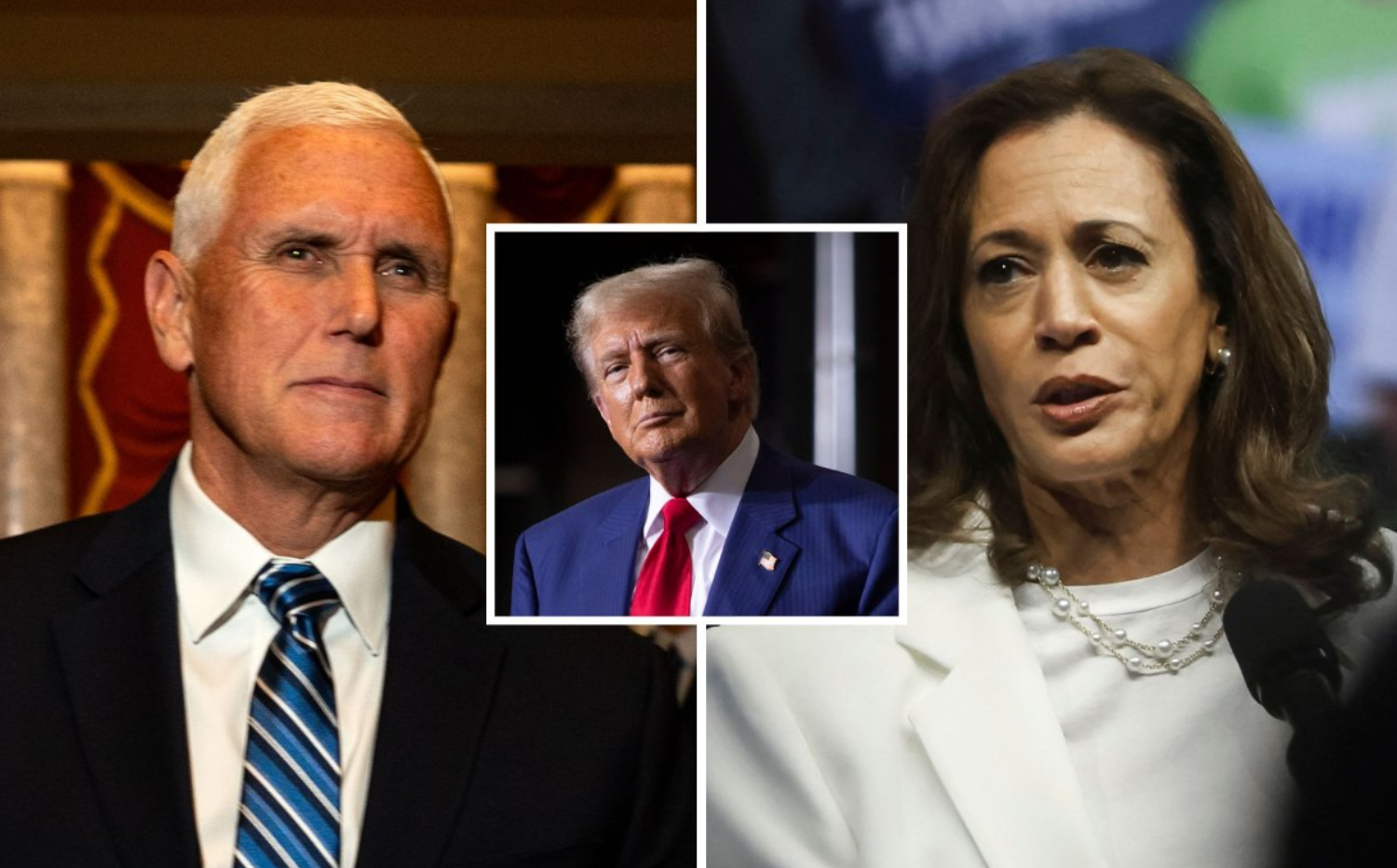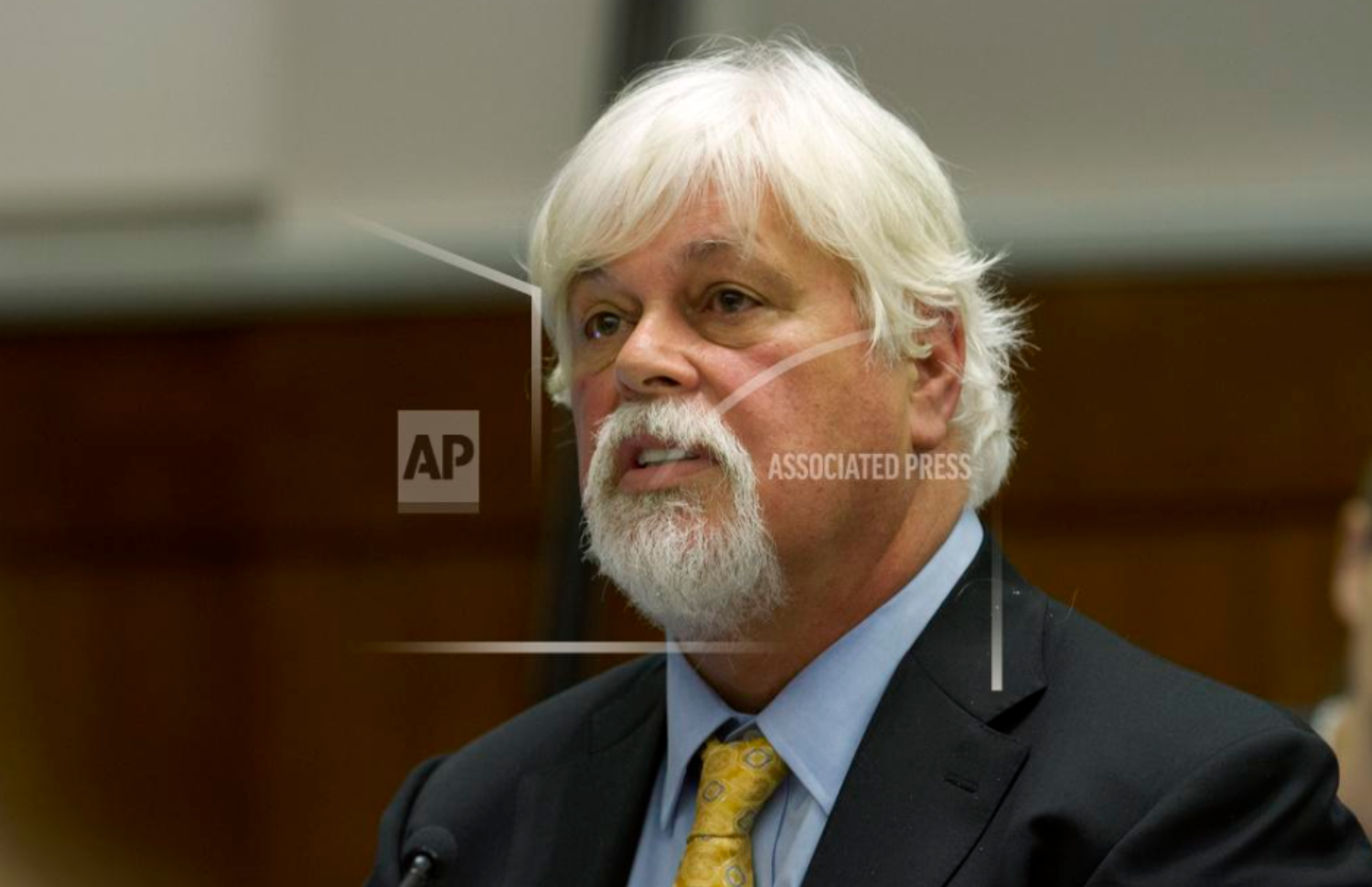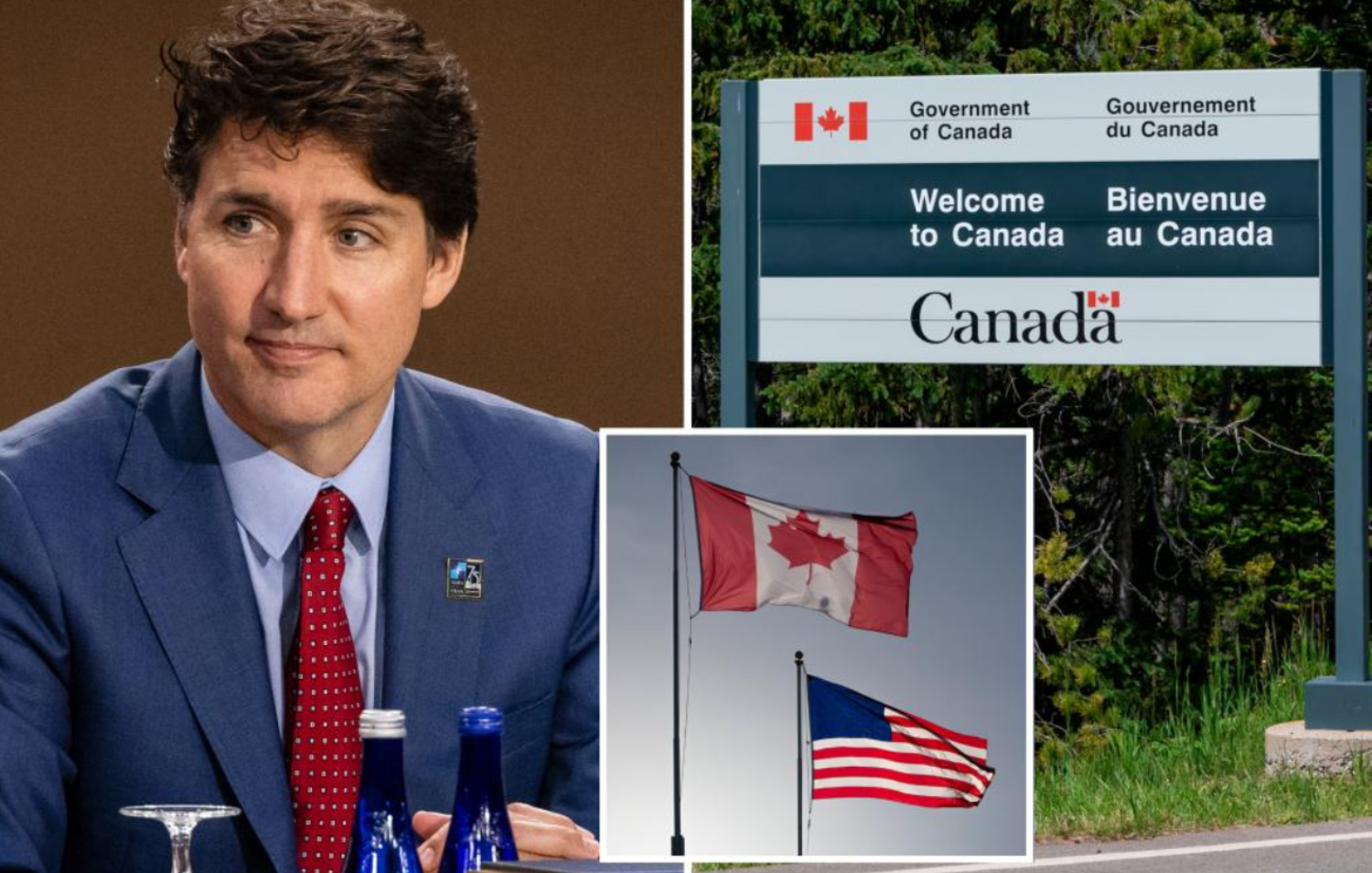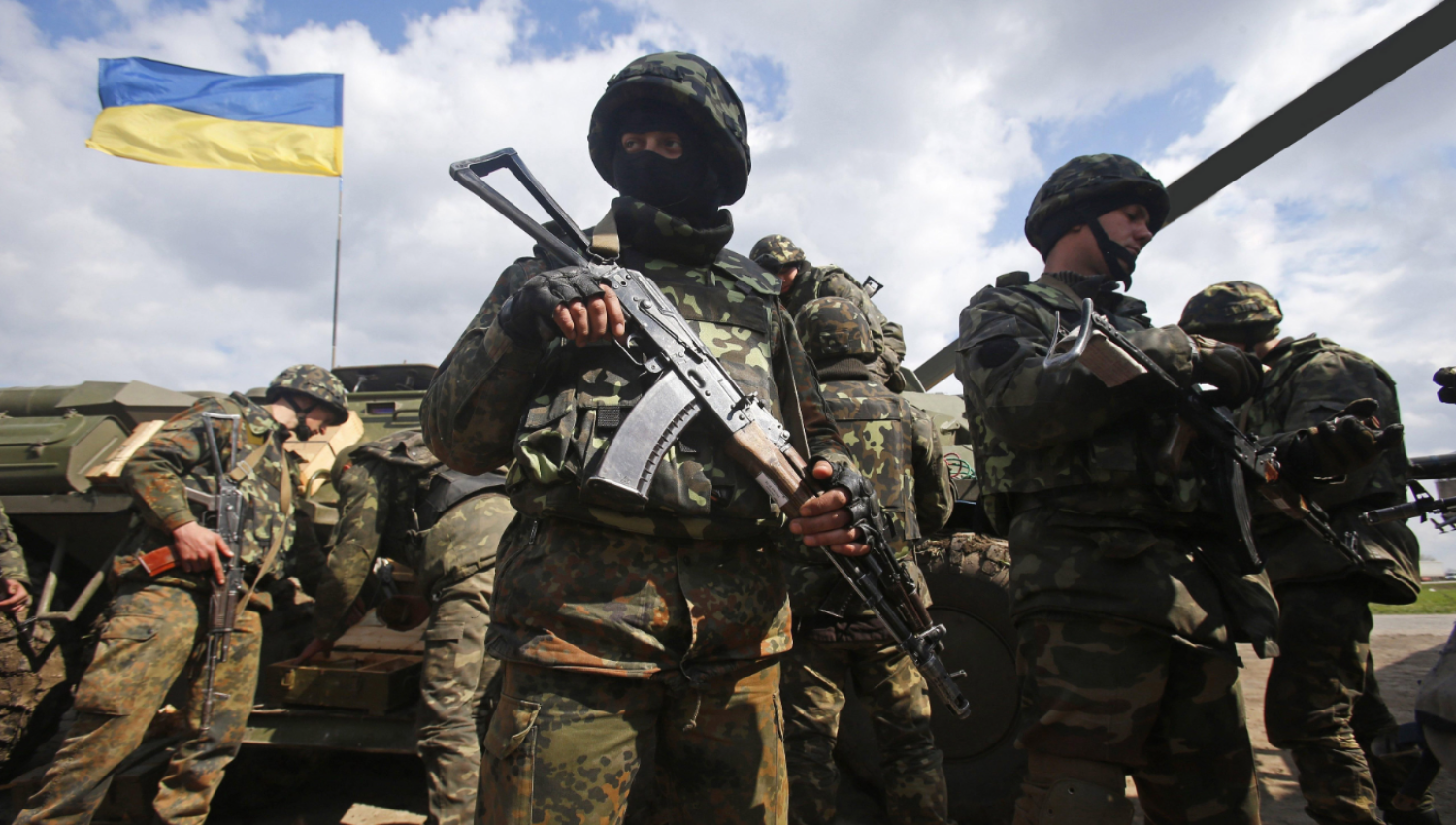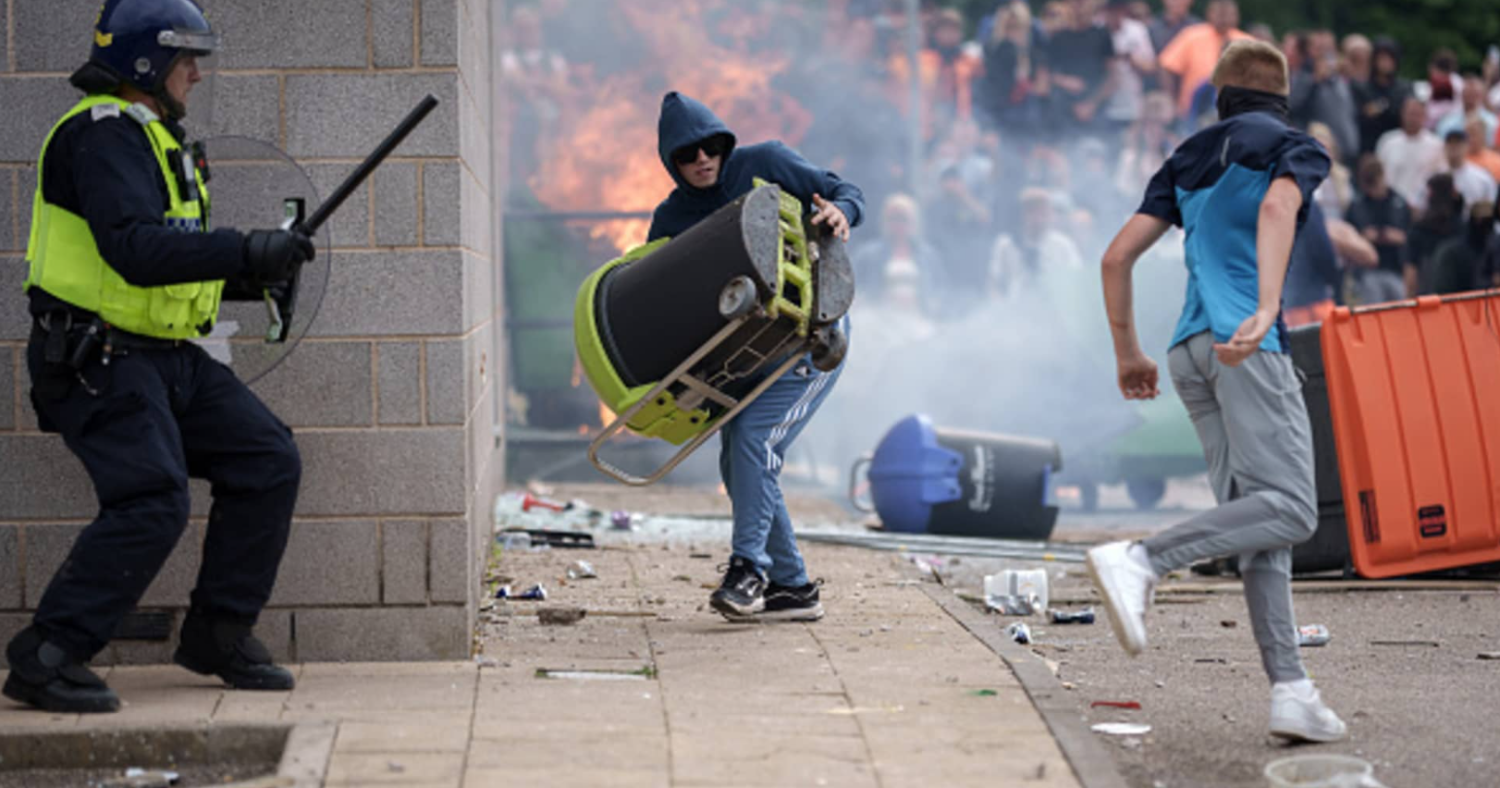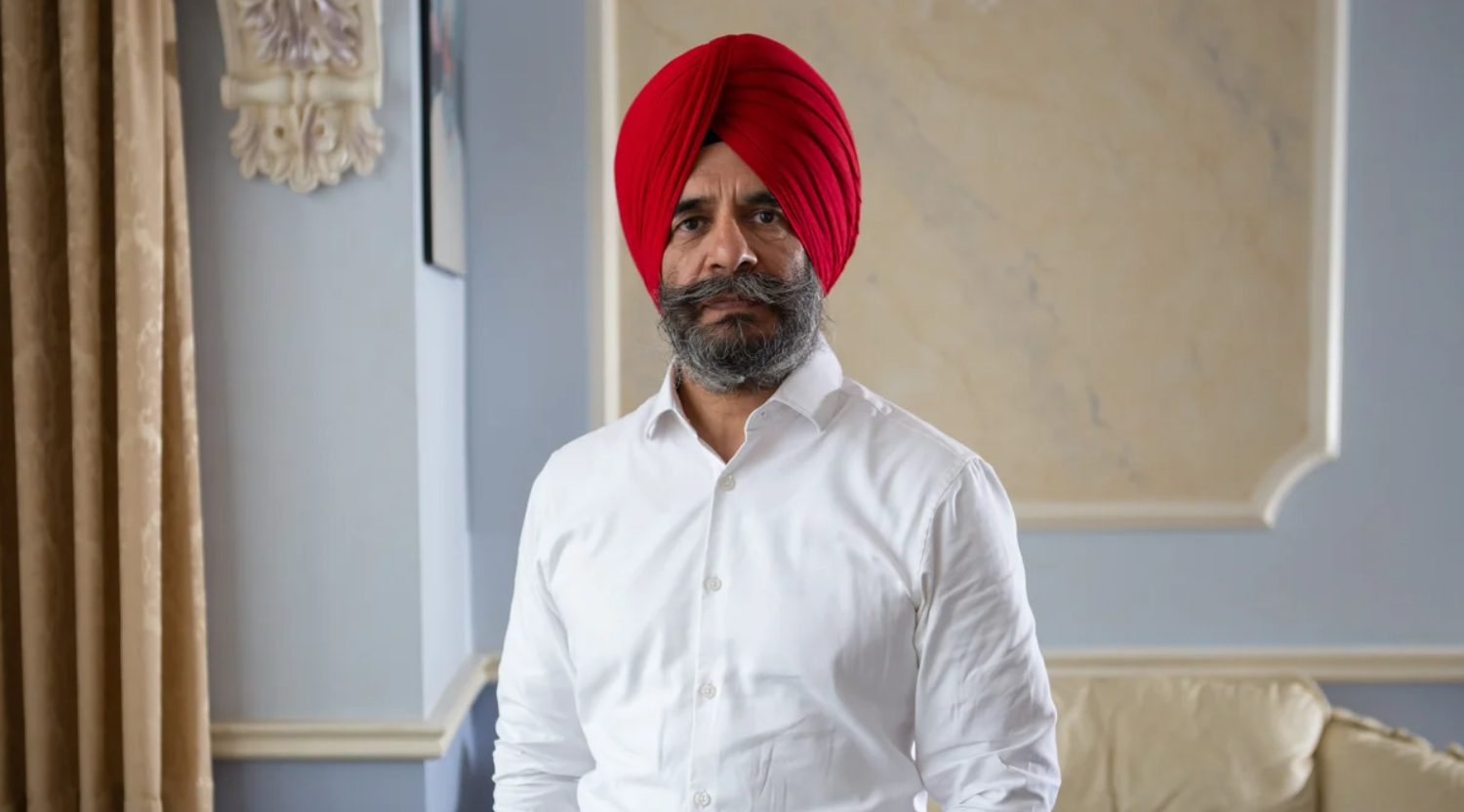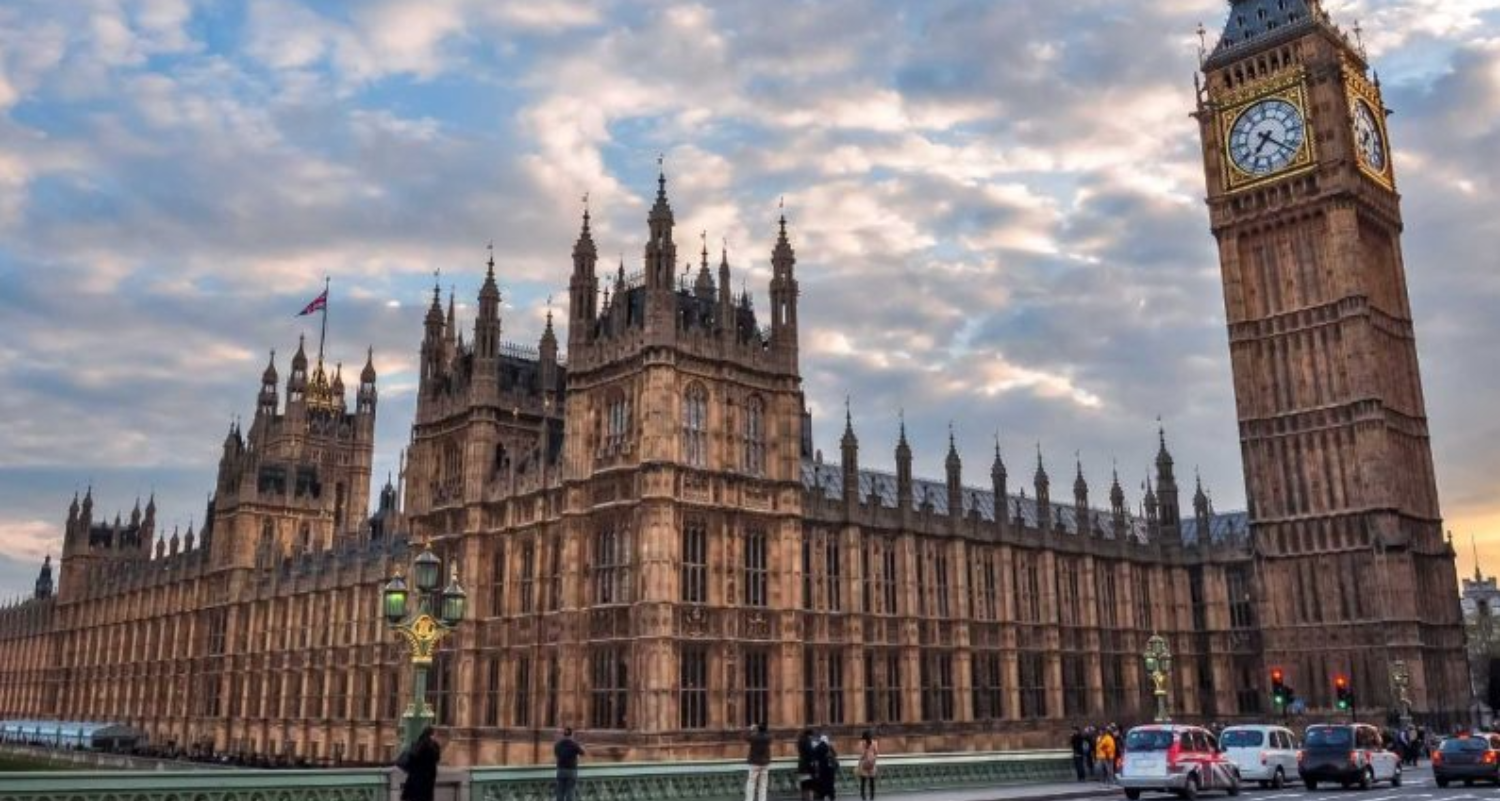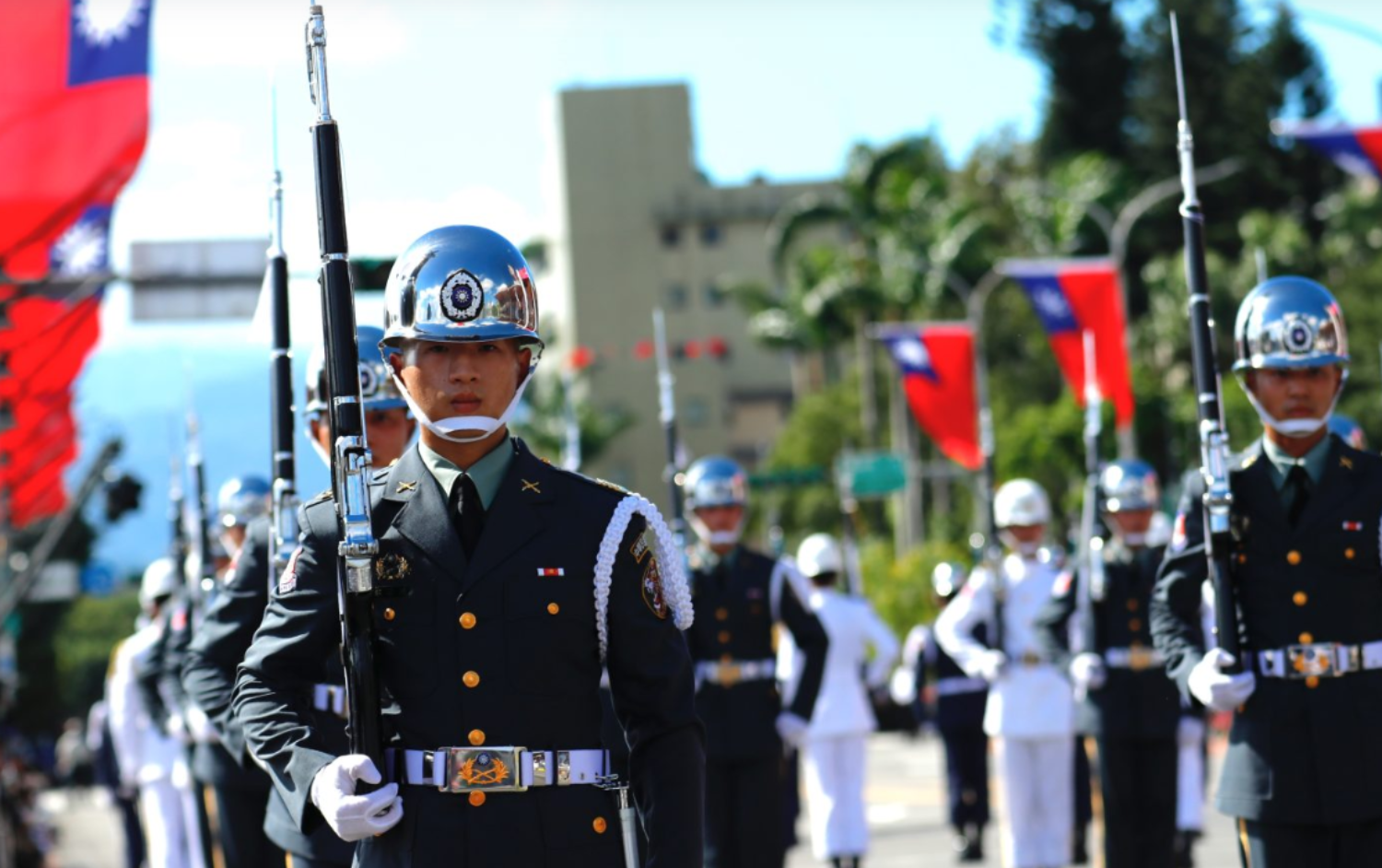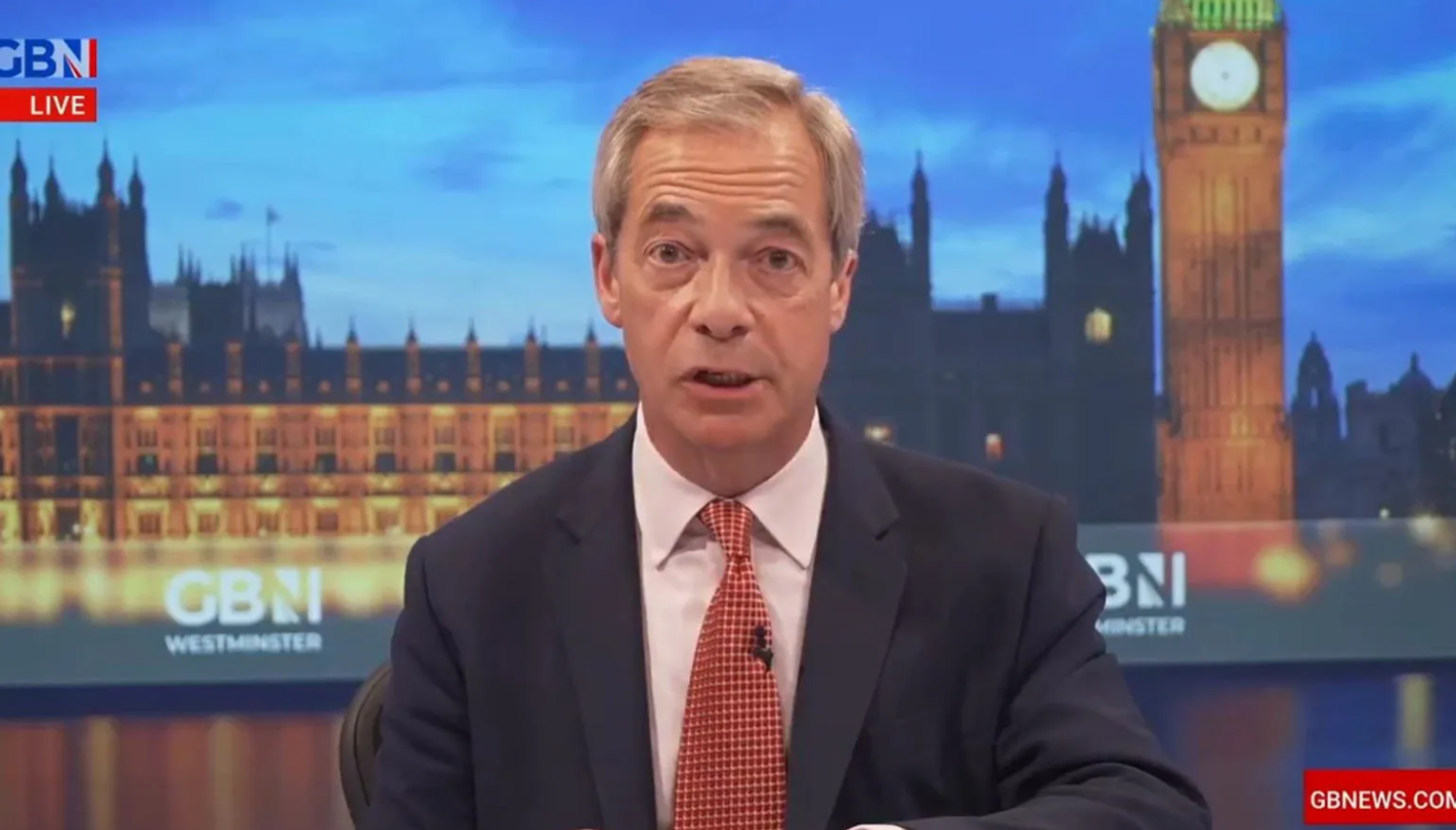-
Posts
10,092 -
Joined
-
Last visited
Content Type
Events
Forums
Downloads
Quizzes
Gallery
Blogs
Everything posted by Social Media
-
Donald Trump, the Republican presidential nominee, faced widespread criticism on social media after accusing Kamala Harris of being "horrible" to his former Vice President Mike Pence. The comments were made during an interview with Fox News's Mark Levin, which aired on Saturday, and a clip of the exchange quickly gained traction online. According to The New York Times, Trump later called Pence, allegedly telling him, “You can either go down in history as a patriot, or you can go down in history as a p****.” The situation escalated that afternoon as Trump supporters stormed the U.S. Capitol, chanting “Hang Mike Pence” and erecting a gallows outside. Pence was evacuated from the Senate chamber at 2:13 p.m., narrowly avoiding the rioters who breached the Capitol. At 2:17 p.m., Trump tweeted again, criticizing Pence for lacking the courage to challenge the election results. This tweet, like many others from that day, has since been deleted. The events of January 6 remain a focal point of criticism for Trump, with many questioning the safety and integrity of his vice presidency under the circumstances he himself helped to create. Trump’s recent comments about Harris have only reignited these debates, underscoring the ongoing scrutiny of his actions during one of the most contentious moments in recent American history. Credit: Newsweek 2024-09-03 Get the ASEAN NOW daily NEWSLETTER - Click HERE to subscribe
-
A woman without biological children is running for high political office, and predictably, this aspect of her life is being used against her. Kamala Harris, the Democratic candidate for the U.S. presidency, has faced scrutiny over her lack of children. Conservative figures like lawyer Will Chamberlain have argued that Harris “shouldn’t be president” because she doesn’t have “skin in the game.” Republican vice-presidential candidate JD Vance has gone so far as to dismiss Harris and other Democrats as “a bunch of childless cat ladies miserable at their own lives.” This obsession with women’s reproductive choices is not just an American phenomenon, though it is particularly pronounced in the U.S., where right-wing movements are deeply fixated on women’s roles as mothers. This mindset was also evident in the 2016 Conservative Party leadership race in the U.K., when Andrea Leadsom suggested that her opponent, Theresa May, was less invested in the country’s future because she didn’t have children. “I feel that being a mum means you have a real stake in the future of our country,” Leadsom stated, implying that childless women are less qualified to lead. The fixation on whether or not a woman has children is not simply a matter of ideological debate. It is a reflection of a deeper, more insidious belief that a woman’s worth and credibility are tied to her ability to reproduce. JD Vance’s comments reveal this mindset clearly. He claims that childless leaders on the left are “trying to brainwash the minds of our children,” suggesting that their lack of biological offspring makes them untrustworthy or incapable of understanding the needs of future generations. This line of thinking is rooted in a traditional view that struggles to see women as anything other than potential mothers. It is a perspective that persists even in supposedly progressive societies, where women who choose not to have children—or who cannot have them—are often viewed with suspicion or contempt. The higher a woman rises in the professional sphere, the more likely she is to face questions about her childlessness. Society seems to demand an explanation, as if a woman’s value is incomplete without motherhood. Behind this obsession lies an uncomfortable truth about how capitalist societies function. Women who do not have children are less likely to be confined to the domestic sphere, where they provide unpaid labor that supports not only their families but also the broader economy. As writer Helen Charman argues in her book Mother State, motherhood is not just a personal experience but a political one. The work of raising children, which is foundational to society, is often unequally shared and undervalued, yet it is essential to maintaining the status quo. A woman who does not bear children disrupts this system. She is less likely to stay at home, providing free care that underpins the economy. Without such women, the lack of adequate parental leave, childcare, and eldercare in capitalist societies becomes glaringly obvious. The absence of this “free” labor challenges the inequitable economic arrangements that many societies are built upon. As Charman notes, “Nurture, care, the creation of human life… have more to do with power, status, and the distribution of resources than we like to admit.” This view reduces the decision not to have children to a matter of personal selfishness, ignoring the broader social and economic factors at play. The lack of affordable childcare, the absence of support networks, and the financial risks associated with motherhood are often downplayed in favor of a narrative that blames women for choosing not to have children. As Charman points out, assuming that motherhood happens without consideration of these factors is a “useful fantasy” that supports the existing power structures. The discourse surrounding childless women is often binary, ignoring the complex realities of women’s lives. Many women who do not have children have experienced pregnancies, miscarriages, and abortions. Some have stepchildren, like Harris, but these relationships are often dismissed as irrelevant. Others extend their nurturing roles to the children of friends and family. Yet, these experiences are frequently overlooked in favor of a simplistic narrative that equates motherhood with a woman’s ultimate purpose. Credit: The Guardian 2024-09-03 Get the ASEAN NOW daily NEWSLETTER - Click HERE to subscribe
-
The Islamic State Khorasan (IS-K), a branch of the Islamic State, has increasingly become a significant global threat. In 2024 alone, the group has been linked to numerous attacks and plots, highlighting its expanding influence and reach. Among the most high-profile incidents were a deadly attack on a Moscow concert hall, plans to disrupt three Taylor Swift concerts in Austria, and twin bombings in Iran. The rise in IS-K's activities has prompted concerns among international security agencies, with the group now considered "the greatest external terror threat" to Europe. "Recently, especially since the uptick in propaganda, we've seen a bigger focus on Central Asia and on Europe," he said. Initially focused on gaining territory in Afghanistan to establish a caliphate, IS-K's ambitions have since broadened. Following the withdrawal of US troops from Afghanistan in 2021 and the Taliban's return to power, IS-K has strengthened its global operations despite the Taliban’s efforts to suppress them. A recent UN Security Council report noted that "The threat posed by [IS-K] has grown with significant terrorist attacks outside of Afghanistan," citing the Moscow attack in March as a notable example. The foiled plot to attack the Swift concerts in Austria underscores the group's intent to carry out high-profile attacks that could generate significant media attention. The US's Central Intelligence Agency (CIA) stated that the suspects in this plot intended to kill "tens of thousands" of people, highlighting the group's capacity for large-scale violence. IS-K's growing international ambitions were also evident in their involvement in the March attack on Crocus City Hall in Moscow, which left nearly 140 people dead. While IS-K did not directly claim responsibility, their subsequent actions, including posting a video from one of the attackers' phones, suggested their involvement. Even when their plots are foiled, as in the case of the planned attacks on the Swift concerts, IS-K still considers these incidents as victories. The group's ability to generate widespread fear and attention, even without successfully carrying out an attack, underscores the growing threat they pose to global security. As IS-K continues to expand its influence and operations, the international community must remain vigilant in countering this rising terror threat. Credit: Sky News 2024-09-03 Get the ASEAN NOW daily NEWSLETTER - Click HERE to subscribe
-
Despite being detained in a Greenland prison, anti-whaling activist Paul Watson remains undeterred in his mission to save whales. The 73-year-old US-Canadian campaigner, known for his radical and confrontational tactics against whaling, continues to fight for the cause even while facing potential extradition to Japan. "If they think it prevents our opposition, I've just changed ship. My ship right now is Prison Nuuk," Watson told AFP with a mischievous smile during an interview in the visitors' room of Nuuk Prison. Watson, who gained fame through the reality TV series "Whale Wars" and as the founder of Sea Shepherd and the Captain Paul Watson Foundation (CPWF), has long been a thorn in the side of whaling nations. His arrest in July in Nuuk was based on a 2012 warrant issued by Japan, which accuses him of causing damage to one of its whaling ships in 2010 in the Antarctic. Japan also alleges that Watson injured a Japanese crew member with a stink bomb intended to disrupt whaling activities and has requested his extradition to face trial. To ensure Watson does not flee, he is being held in custody pending the Greenlandic government's decision. Watson and his legal team argue that Tokyo's pursuit of him is motivated by a desire to make an example out of him. "They want to set an example that you don't mess around with their whaling," Watson said, clad in a thick grey sweater. The Nuuk court is set to decide on September 4 whether to extend his detention. "The lawyers tell me they're going to extend my detention," he remarked. Watson remains resilient, even finding solace in his current situation. From his cell in the modern grey prison building overlooking the sea, he can watch whales and icebergs pass by his window. "It's almost like I'm on the deck of my ship," he said, calling it "the best prison I've ever been in." While he does not mind the detention, he admitted that he misses his young children, aged three and seven. Watson spends his time watching detective shows, reading, and most importantly, writing. He passes his writings to Lamya Essemlali, head of Sea Shepherd France, who has visited him almost daily since his arrest. Support for Watson is widespread, with more than 100,000 people signing a petition calling for his release. Even his fellow inmates in the prison have shown admiration, despite his opposition to Greenland's traditional seal hunt. "I signed autographs when I arrived," Watson shared. He also receives numerous letters of support, many from children who are passionate about the environment. "If we manage to reach children, I think things can change," he said. International support for Watson has also been strong, with French President Emmanuel Macron's office and animal rights activist Brigitte Bardot urging Denmark not to extradite him. Watson, who has lived in France for nearly two years, believes Denmark is in a difficult position. "They can't extradite me because first they are vocal proponents of human rights," he said, criticizing the Japanese judicial system as "medieval." He maintains his innocence, stating, "I didn't do anything, and even if I did, the sentence would be a fine of 1,500 kroner ($223) in Denmark—not even a prison sentence—while Japan wants to sentence me to 15 years." Despite his incarceration, Watson’s resolve remains unbroken. He has one ship stationed in each hemisphere, ready to act if any of the countries that still permit whaling—Iceland, Japan, and Norway—resume their hunts. "In 1974, my objective was to eradicate whaling, and I hope to do that before I die," Watson said. He emphasizes that his organization is not a protest group, but rather an "enforcement organization" dedicated to protecting the seas. Rejecting the label of ecoterrorist, Watson explained, "I do aggressive non-violence interference. There is no contradiction between aggressive and non-violence—it means that I will try and get the knife from the person trying to kill a whale, but I won't hurt them. I don't cross the line, I've never hurt anyone." Credit: ABC News 2024-09-03 Get the ASEAN NOW daily NEWSLETTER - Click HERE to subscribe
-
A NASA astronaut aboard the International Space Station (ISS) recently reported hearing an unusual noise emanating from the Boeing Starliner spacecraft. The report came just days before the spacecraft was scheduled to undock from the ISS and attempt a return to Earth on autopilot. The astronaut, Butch Wilmore, who has been stationed on the ISS, relayed his concerns to Mission Control at Johnson Space Center in Houston. Listen to Real Audio The strange noise was first brought to public attention by Ars Technica, which cited a recording initially captured and shared by Michigan-based meteorologist Rob Dale. As of now, the source of the sound remains unidentified. Fox News Digital has reached out to both Mission Control and Boeing to inquire if the origin of the sound has been determined, but no conclusive information has been provided. The Starliner spacecraft is set to undock from the ISS without a crew and is expected to land in the New Mexico desert using its autopilot system. NASA had previously deemed it too risky to bring back Wilmore and fellow astronaut Suni Williams in the Starliner, delaying their return until February. This mission has faced numerous challenges, initially planned as a weeklong trip in early June. However, the mission has been plagued by issues, including thruster failures and helium leaks. Boeing, which has been relying on Starliner’s first crewed mission to revitalize its troubled spacecraft program, has faced years of delays and escalating costs. Despite these setbacks, the company has maintained that the Starliner is safe, citing successful recent thruster tests conducted both in space and on the ground. Credit: NYP 2024-09-03 Get the ASEAN NOW daily NEWSLETTER - Click HERE to subscribe
-
Canadian Prime Minister Justin Trudeau is scaling back the country’s migrant worker program amidst growing domestic backlash and strained relations with the United States. The decision marks a significant shift for Trudeau, who once championed Canada’s open immigration policies but now faces mounting pressure both at home and from US lawmakers concerned about illegal migration. According to the Financial Times, the Canadian government has been under increasing pressure from the US to curb the flow of migrant workers entering from Canada, which has one of the world’s most permissive immigration systems. Glenn Cowan, founder and CEO of the security company One9, highlighted the concerns: “U.S. lawmakers are calling to harden the northern border with Canada because of the fears of illegal migration from Canada. Stemming the flow of these visas will bolster U.S. relations.” Trudeau’s move to limit the foreign worker program is seen as a response not only to US concerns but also to rising domestic criticism. Facing a decline in the polls ahead of next year’s election, Trudeau addressed the issue by emphasizing the need for balance: “We are looking at the various [migration] streams to make sure, as we move forward, Canada remains a place that is positive in its support for immigration but also responsible in the way we integrate and make pathways for success.” Conservative Party leader Pierre Poilievre has been a vocal critic, accusing Trudeau of mismanaging Canada’s immigration system and calling for “smaller population growth” in the future. Under the new policy changes, the number of low-wage workers that Canadian companies can hire will be reduced by 10% to 20%. Trudeau also hinted at broader immigration reforms set to be unveiled later this year. While some business leaders have expressed concern that these rollbacks could disrupt the supply of affordable labor, others argue that the influx of migrants has led to rising youth unemployment, increased housing costs, and additional pressure on Canada’s healthcare system. The debate around immigration has also intensified in the United States, where President Biden and Vice President Harris are under increasing scrutiny over record-breaking border crossings from 2021 to 2023. Immigration has consistently ranked as a top concern for voters, prompting US officials to call for stronger measures at the border, including with Canada. As Trudeau navigates the complex political landscape, his office has yet to comment publicly on these latest developments. Meanwhile, the changes to Canada’s immigration approach could significantly impact the nation’s economic and social dynamics, as the government attempts to strike a balance between openness and responsibility. Credit: NYP 2024-09-03 Get the ASEAN NOW daily NEWSLETTER - Click HERE to subscribe
-
Prince Harry has reportedly sought advice from his former British aides about a potential return from the United States that could involve a partial reinstatement into the royal family, according to sources. This move marks the initial phase of what some insiders describe as a strategy to "rehabilitate" the Duke of Sussex, highlighting his desire to mend relationships within the royal fold. The Mail on Sunday reported that Harry has been in contact with advisers who worked with him during his time as a senior royal. This consultation is believed to be driven by ongoing challenges with American-based PR firms, which have reportedly prompted Harry to consider a more balanced approach between his life in the US and his ties to the UK. Despite his efforts to reconnect with the royal establishment, sources emphasized that neither Harry nor his wife Meghan Markle are contemplating a full-time return to the UK. A key element of Harry’s strategy, according to insiders, is to repair his strained relationship with his father, King Charles. While the exact nature of the advice Harry has received remains private, the outreach to former aides suggests he is exploring ways to rebuild connections and reestablish a more harmonious relationship with his family. For now, Harry and Meghan appear focused on creating a scenario where they can maintain their lives in the US while fostering a healthier, albeit limited, connection to the British royal family. Sources have underscored that this approach is still in its infancy and no formal decisions have been made. However, the conversations between Harry and his former aides point towards a deliberate effort on his part to find a middle ground—one that could enable him to bridge the gap between his past responsibilities as a working royal and his current role as a private individual. This initiative could also be seen as a broader attempt by Harry to redefine his place within the royal narrative without fully abandoning his newfound independence in America. Credit: The Independent 2024-09-03 Get the ASEAN NOW daily NEWSLETTER - Click HERE to subscribe
-
Since April, the war in Ukraine has claimed the lives of approximately 16,000 Russian soldiers, marking a significant increase in casualties as the conflict drags on. This troubling figure comes from a data project conducted by the BBC's Russia service and the independent Russian media outlet Mediazona, both of which have been meticulously tracking deaths through official reports, media coverage, and satellite images of Russian graveyards. However, the numbers provided by the project likely represent a conservative estimate, as they only include deaths that could be definitively verified. As of August 30, Mediazona reported that it had identified the names of 66,471 Russian soldiers who have been killed since the onset of the war. Back in April, the same project had recorded over 50,000 confirmed deaths, illustrating the sharp rise in the death toll over the subsequent months. The escalation in fatalities is consistent with the estimates provided by the British Ministry of Defence, which in June predicted that Russia was suffering an average of 1,000 casualties per day. This prediction was based on the sustained Russian pressure across various front lines, leading to increasingly heavy losses. The term "casualties" encompasses both deaths and injuries, meaning the human cost of the war is even more severe than the death toll alone suggests. The Ministry of Defence's June estimate indicated that Russia had already sustained 70,000 casualties in just the two preceding months. This forecasted trend of high casualty rates appears to be continuing, with Russia now facing a prolonged period of intense losses. Mediazona noted that the recent increase of 4,600 deaths in the last four weeks was not directly related to specific military operations, such as Ukraine's incursion in Kursk or Russia's advances in the eastern regions. Instead, this surge in recorded deaths reflects the ongoing work of researchers who are still processing a backlog of death reports. As the war continues with no clear resolution in sight, the human toll continues to climb, casting a shadow over the future of both nations involved. The rising numbers highlight the devastating impact of the conflict on Russian forces, as the country grapples with the consequences of sustained military engagement in Ukraine. Credit: Daily Telegraph 2024-09-03 Get the ASEAN NOW daily NEWSLETTER - Click HERE to subscribe
-
This summer, Britain witnessed some of its worst riots in over two decades. The catalyst was the horrific murder of three children during a Taylor Swift-themed dance class in Southport. False claims online that the suspect was a Muslim asylum seeker sparked widespread violence, with mosques and refugee accommodations being targeted by angry mobs. The violence was not only directed at immigrants but also at long-standing communities of color, fueled by various far-right groups. As the newly elected Labour government under Prime Minister Keir Starmer searches for answers, a glaring issue has emerged: the previous Conservative government’s neglect of the rising threat of far-right extremism. According to officials working in counter-extremism, the last three years of the Conservative administration saw a significant drop in monitoring far-right activities, despite escalating tensions over immigration. Prime Minister Starmer responded swiftly to the riots by deploying a "standing army" of police officers, resulting in over 1,000 arrests and more than 600 charges. Among those arrested were two 12-year-old boys accused of throwing projectiles at the police and brothers who looted a local library. However, the roots of the violence seem to trace back to a failure to adequately address far-right extremism. A civil servant involved in national security suggested that this oversight was partly due to diverted funding and low morale among those tasked with monitoring extremism. Another official revealed that while the Conservative government had effectively managed public health disinformation during the pandemic, their focus on far-right extremism waned, leaving the country vulnerable. The official added that previous governments, both Conservative and Labour, had traditionally kept a close watch on right-wing extremism, but there had been a significant reduction in resources dedicated to this threat in recent years. Professor Paul Thomas, a counter-extremism expert, pointed out that financial constraints due to the post-COVID cost of living crisis further contributed to this lack of focus on the far-right. He noted that there had been no new or revised counter-extremism strategy in the past few years, leading to a discontinuation of preventative activities that were crucial in some areas prone to far-right extremism. A review by Sara Khan, the government’s former social cohesion and resilience adviser, echoed these concerns. Her review warned that budget cuts were leaving communities vulnerable to exploitation by extremists, including the far-right. The city of Stoke, for instance, lost its anti-terrorism funding despite ongoing extremist activity, resulting in increased violence during the riots. London also saw cuts to its anti-extremism efforts, with Prevent funding set to be reduced by half by 2025. Dr. Jessica White, a terrorism and conflict studies expert, highlighted that far-right activity had indeed fueled the riots. She pointed out that while not all participants in the unrest were violent extremists, the far-right's influence made it easier for them to get caught up in extremist ideologies. The previous government had been repeatedly warned about the growing far-right threat, including by the Intelligence and Security Committee (ISC) in 2022. The committee criticized the transfer of responsibility for extreme right-wing terrorism to MI5 without adequate resources, leaving the security services stretched thin. The ISC also noted that the armed forces lacked a ban on joining extremist organizations, which they deemed risky. Despite these warnings, there was a prevailing belief among some officials that the far-right did not pose a significant threat. Alex Carlile, a former MP and terrorism legislation reviewer, mentioned that the far-right was often dismissed as “idiotic political activists” rather than a serious threat. However, the recent riots have shown that this underestimation had severe consequences. As Britain moves forward, Prime Minister Starmer has emphasized the need to tackle the "snake oil of populism and nationalism" that fueled the unrest. His government has announced a review of its counter-extremism strategy, with a focus on both Islamist and far-right extremism, as well as extreme misogyny. Home Secretary Yvette Cooper stated that action against extremism had been severely weakened in recent years, just when it was needed most. The government now faces the challenge of rebuilding its approach to countering extremism, addressing both the immediate threat from the far-right and the underlying issues that allowed this summer's riots to spiral out of control. Credit: Politico 2024-09-03 Get the ASEAN NOW daily NEWSLETTER - Click HERE to subscribe
-
Link to a questionable source website has been removed along with replies to it.
-
Autopsy Confirms Hostages Were Executed by Hamas as Israeli Forces Advanced An autopsy has revealed that the six hostages recovered from the Gaza Strip over the weekend were shot multiple times at close range, confirming that they were executed by Hamas militants. The findings, released by the Health Ministry on Sunday, indicated that the hostages were killed 48 to 72 hours prior to their autopsies, placing their deaths between Thursday and Friday morning. The examination, conducted by the Abu Kabir Forensic Institute, determined that all six hostages had been shot from close range, leading to the conclusion that they were deliberately executed. The Israeli Defense Forces (IDF) had earlier reported that Hamas terrorists killed the hostages shortly before their bodies were discovered by troops on Saturday afternoon in a tunnel complex in Rafah, southern Gaza. According to reports from Channel 12, Israeli security officials fear that Hamas executed the hostages out of concern that information might be leaked about the whereabouts of other captives. This fear was allegedly heightened after a hostage rescued from a nearby tunnel last week might have divulged critical details. The murders have sparked outrage and further confirmed the view that Hamas is not interested in negotiating a ceasefire deal. Jonathan Conricus, a former Israel Defense Forces spokesman, expressed his condemnation, stating, "Words that don't mix are good faith and Hamas. They abducted women, children, civilians, the elderly, and babies and have been holding onto them now for 331 days. If you look at their actions, I think you can make the assumption that they're not going to negotiate and they're not interested in returning hostages." The tragic deaths of the hostages also drew a sharp rebuke from former U.S. President Donald Trump, who criticized the current U.S. administration. Posting on his Truth Social network, Trump stated, "The deaths of the Israeli hostages, among them American-Israeli Hersh Goldberg-Polin, happened because Comrade Kamala Harris and Crooked Joe Biden are poor leaders. Americans are getting slaughtered overseas… They have blood on their hands! Sadly, this is the total lack of ‘Leadership’ that Kamala and Biden represent." He further claimed, "This terror would have never happened if I were President, and it will stop the day I am back in the Oval Office." International condemnation followed, with UK Foreign Secretary David Lammy issuing a statement: "The UK condemns Hamas’ appalling murder of six innocent hostages in Gaza in the strongest terms. I offer my deepest condolences to those grieving at this awful time. Hamas must release all the hostages immediately, and all sides must accept the deal on the table to end this war." U.S. Representative Adam Schiff also expressed his anger and grief over the deaths, particularly of Hersh Goldberg-Polin, a young American-Israeli. "I am devastated and outraged. Hersh was among the innocents brutally attacked while attending a music festival for peace in Israel on October 7. He lost his arm helping friends and strangers during Hamas’ savage massacre. He had just turned 23. He planned to travel the world." The killings have fueled widespread anger and sorrow across Israel, leading to mass protests on Thursday. The Hostages and Missing Families Forum estimated that around 300,000 people rallied in solidarity with the hostage families, blocking major roads, including the Ayalon Highway, in a show of collective grief and defiance. The murders have deepened the already intense conflict, further complicating the possibility of peace in the region. Credit: MSM 2024-09-02 Get the ASEAN NOW daily NEWSLETTER - Click HERE to subscribe
-
Jas Athwal, the newly elected Labour MP for Ilford South, has been accused of renting out properties plagued by serious issues, including black mould and ant infestations. Athwal, who owns 15 rental flats, expressed his shock and deep regret over the state of his properties after the allegations surfaced. According to a BBC report, tenants in one block of seven flats claimed they had to frequently clean their bathroom ceilings to remove mould, while a reporter documented evidence of ant infestations in several units. “The ants are everywhere,” one resident described, pointing to the insects crawling up a door frame. “They are on my kid’s body and on their clothes.” Another tenant reported feeling threatened with eviction by the letting agent if they complained about the conditions or applied for benefits. Athwal, who has branded himself a “renters’ champion,” insisted he was unaware of the problems, stating that the properties were managed by an external agency. He denied that any tenant had been threatened with eviction. The properties in question require a selective property licence, a system that Athwal himself introduced in December while serving as leader of the Redbridge council. However, the BBC’s investigation found that a search on the council’s public licence register did not show any current licences for the properties. Labour’s 2024 general election manifesto pledged to protect private renters from exploitation and discrimination, adding to the pressure on Athwal to address the issues highlighted by his tenants. The BBC claimed that tenants who had spoken to their reporter about the substandard conditions were later contacted by the property manager, which seemed to intimidate them into silence. “After receiving these calls they became hesitant about talking to me. This appeared to me to be intimidation,” the BBC’s reporter Joe Pike stated. In a statement released on Friday night, Athwal expressed his dismay at the state of the flats and apologized. “I’m profoundly sorry,” he said. “It was my understanding all the licences for my properties were up to date, but I have recently seen an email which shared that licences are due to expire, I am in the process of renewing all licences.” He added, “I’m proud to rent out homes with secure tenancies at below-market rents. I want every one of my tenants to have excellent accommodation; I’m shocked at the reported condition of a number of the properties and have asked the managing agent for an explanation and immediate action to rectify any issues.” A spokesperson for the Redbridge council acknowledged the situation, emphasizing the importance of landlords adhering to licensing requirements. “We are aware of the situation with these properties. In all cases, we expect properties that require a licence to apply for it. Where they do not have a licence, we will send notices and commence enforcement action,” the spokesperson said. “It is important that all landlords apply for their licences. This is about maintaining the standards of our selective licensing scheme and ensuring the safety and wellbeing of people in Redbridge.” The Labour Party has been approached for comment on the matter, but as of now, there has been no official response. Athwal's case highlights the ongoing challenges in the rental market, where tenants often face substandard living conditions, and underscores the need for stricter enforcement of regulations to protect renters’ rights. Credit: The Guardian 2024-09-02 Get the ASEAN NOW daily NEWSLETTER - Click HERE to subscribe
-
The tendency to demonize those who sympathize with Trump alienates voters that Democrats need to reach. It’s challenging to win over people you scorn, and more importantly, it’s unjust to ridicule working-class Americans struggling economically and socially. Many Trump supporters are people left behind by economic shifts, suffering from addiction and despair, often dying young. They deserve empathy, not mockery. It’s essential to criticize Trump without generalizing or belittling the millions of Americans who have sided with him. Living in a rural area, I have old friends who are Trump supporters. One friend, a kind and generous woman, supports Trump because she feels betrayed by both political establishments. She faced hardship when factories closed, losing her job, her home, and even battling addiction. Her pain and loss make her receptive to Trump’s promises to restore jobs. Her commitment to him only deepens when she hears liberals mock her faith, which helped her survive homelessness, or label her as “deplorable.” Another example is my hairdresser, whose daughter struggled with addiction, leading her to leave her job to care for her grandson. Her replacement also faced loss when her husband died of an overdose, and she now supports her addicted son. She’s not politically engaged, doesn’t trust Trump, sees him as a bully, and is frustrated with Democrats over rising food prices. “I’m not sure how I’ll vote,” she said, “or if I’ll vote.” She’s a hardworking person who would benefit from Democratic policies, yet she’s hesitant because of how her struggles are often dismissed. Working-class Americans have every right to feel abandoned. In the aftermath of the September 11 attacks, the U.S. spent trillions on wars, but the response to the ongoing crisis of deaths from drugs, alcohol, and suicide has been minimal. Blue-collar communities are fraying, and people are justifiably angry. Since Obama’s presidency, Democrats have increasingly attracted educated voters, sometimes at the expense of their working-class roots. In a nation where 74 percent of people believe in God and only 38 percent hold a college degree, condescension toward those without higher education is a losing strategy. Harvard philosopher Michael Sandel criticizes the disdain for less educated people as “the last acceptable prejudice” in America. He’s correct: the scorn that elites sometimes express toward working-class voters is something they would never openly show towards other groups. This prejudice risks distancing the Democratic Party from its historical commitment to standing up for working-class Americans, a legacy that dates back to Franklin Roosevelt’s advocacy for “the forgotten man at the bottom of the economic pyramid.” In recent years, liberals have focused intensely on issues of racial and gender inequality, often overlooking class disparities. Research by Harvard economist Raj Chetty highlights that while racial inequality persists, class divisions are now the more significant factor driving inequality. A comprehensive discussion on inequality today must address both race and class, recognizing that for many people of color, these disadvantages intersect. Kamala Harris, understanding this dynamic, chose a running mate who appeals to working-class voters through his words and policies. She can also credibly present herself as a candidate who worked her way up, contrasting with opponents born into privilege. After tweeting Clinton’s comments on respecting those we disagree with, I received heated replies insisting that Trump supporters deserve contempt. However, resorting to insults rarely wins over undecided voters, just as Trump supporters’ derogatory terms fail to persuade liberals. Donald Trump’s divisiveness has brought out the worst in both his supporters and his critics, fostering mutual hostility. It’s time to take a step back and embrace Clinton’s advice, showing empathy rather than disdain. By treating all voters with respect, Democrats can not only improve their electoral prospects but also contribute to a more civil political environment. Winning hearts and minds starts with listening—and that’s the path forward. Credit: NYT 2024-09-02 Get the ASEAN NOW daily NEWSLETTER - Click HERE to subscribe
-
UK Members of Parliament (MPs) are facing growing pressure from over 100 health groups to stop accepting gifts and hospitality from companies involved in tobacco, alcohol, and junk food. These industries, known for their harmful products, are accused of using underhanded tactics to influence lawmakers and protect their sales, despite the serious health risks associated with their products. The coalition, which includes doctors' groups, health charities, and children's organizations, has specifically challenged Keir Starmer to fulfill his promise of restoring integrity to public life. They are urging him to ban these industries from lobbying MPs through gifts, which can create conflicts of interest and compromise impartiality. The issue has gained further attention as Prime Minister Sir Keir Starmer signals his readiness to take bold action to improve public health. This includes potentially restricting smoking in outdoor areas, such as outside pubs and restaurants. Prof Sir Ian Gilmore, chair of the Alcohol Health Alliance (AHA), emphasized the severity of the issue, stating, "Alcohol, tobacco, and unhealthy food are the three biggest killers in our society, with alcohol alone claiming 10,000 lives in 2022 – the worst on record." The AHA, along with the Obesity Health Alliance (OHA) and Action on Smoking and Health (Ash), has released a joint report exposing the "killer tactics" these industries use to gain political influence. These tactics include downplaying the harm caused by their products, using legal threats to delay health policies, distorting scientific evidence, and providing MPs with gifts and hospitality. The report warns that even seemingly innocuous gifts, such as tickets to sporting events, can create the appearance of a conflict of interest. "Businesses are spending money because they believe it will be in their financial interests," the report states, highlighting that such gifts could influence MPs when amending or voting on legislation impacting these industries. The call for action is supported by prominent health organizations, including the Academy of Medical Royal Colleges, Cancer Research UK, and the British Heart Foundation. These groups argue that the influence of the tobacco, alcohol, and junk food industries on MPs is contributing to a public health crisis, with rising rates of obesity, heart disease, cancer, and type 2 diabetes. Despite the growing pressure, some MPs have continued to accept gifts from these industries. For example, in August 2022, former Conservative MP Thérèse Coffey accepted hospitality worth over £900 from pub and beer group Greene King. Coffey, a critic of "nanny state" policies, later became the health secretary in Liz Truss's government, where she opposed several public health proposals. Similarly, the Budweiser Brewing Group recently sponsored a fundraising event for Labour general election candidates, raising questions about the influence of alcohol producers on political decision-making. Matt Lambert, chief executive of the Portman Group, defended the right of drinks producers to engage with MPs, arguing that excluding them from discussions would be "narrow-minded." However, health advocates, including Katharine Jenner, director of the OHA, argue that successive governments have failed to adequately address the impact of unhealthy food and drink on public health. They claim that loopholes in regulation allow MPs to accept gifts under £300 and permit "unhealthy product industries" to sponsor events in parliament, further entrenching their influence. YouGov polling reveals that a significant majority of voters support protecting government health policies from the influence of the tobacco, alcohol, and food industries. Despite this public sentiment, the debate over the role of corporate gifts in politics continues, with many calling for stricter regulations to ensure that public health remains a priority. Credit: The Guardian 2024-09-02 Get the ASEAN NOW daily NEWSLETTER - Click HERE to subscribe
-
Eurozone inflation has fallen to its lowest level in over three years, driven by declining energy costs, according to official data released on Friday. The latest figures have increased expectations that the European Central Bank (ECB) may soon cut interest rates. In August, consumer prices rose by 2.2 percent compared to the same month last year, down from 2.6 percent in July, moving closer to the ECB's target of two percent. This marks the lowest inflation rate since July 2021 and aligns with forecasts from analysts at FactSet and Bloomberg. Core inflation, which excludes volatile items such as energy, food, alcohol, and tobacco and serves as a key indicator for the ECB, also cooled slightly to 2.8 percent in August from 2.9 percent in July, according to Eurostat. The data brought some relief after inflation unexpectedly increased in July. In response to skyrocketing inflation, the ECB began a series of aggressive rate hikes in July 2022, as inflation peaked at 10.6 percent in October following Russia's invasion of Ukraine, which caused food and energy prices to surge. The ECB cut rates for the first time in June of this year and has since kept them unchanged, though the market now anticipates another cut after the ECB's policy meeting on September 12. According to Sam Miley of the London-based Centre for Economics and Business Research, the data "makes a rate cut at the European Central Bank's upcoming September policy meeting more likely." However, Miley also noted that "the higher rate of core inflation and continually tight labour market will present risk factors to implementing looser monetary policy." Francois Villeroy de Galhau, the head of the French central bank and a member of the ECB governing council, echoed these sentiments, advocating for a September rate cut in an interview with French magazine Le Point. He described the move as "fair and wise," adding, "If we waited until we were actually at two percent to lower rates, we would be acting too late." Despite the optimism, caution remains. Before the data was released, ECB board member Isabel Schnabel emphasized the need for a careful approach to loosening monetary policy. "The pace of policy easing cannot be mechanical. It needs to rest on data and analysis," Schnabel said in a speech in Tallinn, Estonia. The improved inflation performance in August was largely due to a 3.0 percent drop in energy prices, including those at the pump, reversing the 1.2 percent increase seen in July. Meanwhile, food and drink prices rose by 2.4 percent, slightly above the 2.3 percent growth recorded in July. Services inflation also accelerated to 4.2 percent in August from 4.0 percent in July, a change that could be partly attributed to the Olympic Games in Paris. "Services inflation might not be quite as bad as it first appears," commented Jack Allen-Reynolds of Capital Economics. He suggested that the Olympic Games contributed to the rise, particularly through increased accommodation and transport costs. Allen-Reynolds expects the ECB to cut rates in September and again in December, provided services inflation declines over the remainder of the year. There were positive signs in some of Europe’s largest economies, too. Germany saw its annual inflation rate fall to 2.0 percent in August, down from 2.6 percent in July, while France's consumer prices reached 2.2 percent, a decrease from 2.7 percent the previous month. Lithuania recorded the lowest inflation rate in the eurozone at just 0.7 percent. Eurostat also reported a slight drop in the eurozone unemployment rate, which fell to 6.4 percent in July from 6.5 percent in June. Meanwhile, across the Atlantic, the United States is also expected to implement a rate cut in September, as data showed the Federal Reserve’s preferred inflation measure held steady in July. With these developments, the outlook for further monetary easing appears promising, although caution is still advised given ongoing economic uncertainties. Credit: ABC News 2024-09-02 Get the ASEAN NOW daily NEWSLETTER - Click HERE to subscribe
- 1 reply
-
- 1
-

-
What happened to the military hardware left behind when the United States pulled out of Afghanistan? In 2021, just days after the last American soldiers departed, Egyptian documentarian Ibrahim Nash’at arrived in Afghanistan to find out. Granted exclusive permission to film the Taliban, Nash’at captured a chilling glimpse of the aftermath in his film, “Hollywoodgate,” named after the stenciled door of a deserted American military base that was once believed to be a CIA facility. Nash’at’s film chronicles the year he spent in Afghanistan, revealing what he witnessed between his vision as a filmmaker and the Taliban’s agenda. In a restrained opening narration, Nash’at sets modest expectations, admitting, “I thought the Taliban would find and fix a couple of rifles.” What he discovered, however, was far beyond what he imagined. “Hollywoodgate” unfolds like a slow-burning thriller, devoid of interviews, limited voice-over, and sparse action. The film follows Nash’at as he shadows his main subjects, Air Force Commander Mawlawi Mansour and Lieutenant M.J. Mukhtar. As the Taliban comb through the abandoned military site, they uncover a shocking array of items left behind: perfectly functional gym equipment, crates of medicine, unopened alcohol, and trashed computers purposely destroyed to protect sensitive information. However, the most startling discovery is revealed in the final 15 minutes of the film—an estimated $7.12 billion worth of disabled military equipment, including Black Hawk helicopters, fighter jets, transport planes, armored vehicles, fuel, ammunition, and spare parts. The film’s climax occurs during the first anniversary celebration of the Taliban’s return to power. Mansour parades the recovered military hardware before Afghanistan’s prime minister and dignitaries from Russia, Pakistan, Iran, and other allied nations, reminiscent of military pageants seen in regimes like Nazi Germany and North Korea. The display of firepower is both surreal and terrifying, underscoring the dangerous potential of what was left behind. Throughout the film, we see glimpses of the Taliban retraining pilots from the previous regime, watched closely by armed guards, and hear Mukhtar express his chilling aspirations of martyrdom, stating his desire to kill Americans before he dies. The movie concludes with a tense phone call recorded between Mansour and the defense minister of Tajikistan, whom Mansour accuses of harboring anti-Taliban insurgents. Nash’at’s mission was perilous. Restricted from filming ordinary Afghans, he faced constant scrutiny from his Taliban handlers. “If his intentions are bad, he will die soon,” Mansour warns ominously at one point, while other soldiers eye the filmmaker with suspicion, some referring to him as “that devil.” Despite the Taliban’s micromanagement, Nash’at captures fleeting, candid moments that hint at the underlying struggles of the regime’s leadership. Mansour, for instance, questions the legitimacy of a new law requiring women to cover their faces, exposing his uncertainty about its conformity to sharia law. He also reveals that his wife, a doctor, was forbidden from practicing medicine after their engagement. Mukhtar’s views are equally disturbing, comparing women to “unwrapped chocolates” in an allegory that reduces them to objects needing protection from the world’s impurities. These moments provide insight into the minds of men whose extreme ideologies now shape the lives of millions in Afghanistan. “Hollywoodgate” is an oblique yet gripping portrait of a nation trapped in extremism. Nash’at’s closing words capture the haunting essence of his experience: “What I tried to show is what I saw. Because I held this camera, I was kept away from the daily suffering of the Afghans. Yet I feel it everywhere I go. Inside all the gates I went through, one thing I cannot move past is the obscene power of those who worship war, and the pain that it causes for generations.” His film stands as a stark reminder of the enduring consequences of conflict and the human cost of power in the wrong hands. Credit: W.P. 2024-09-02 Get the ASEAN NOW daily NEWSLETTER - Click HERE to subscribe
-
When the Olympic season arrives, certain aspects are expected: world records, memes, emerging sporting heroes, heartwarming moments, and learning more about the host nation. Unfortunately, another element has become just as inevitable: the heated discussions surrounding transgender athletes' participation. As a transgender person, I’ve watched with increasing concern as the conversation about our inclusion in sports has intensified over the years. With every major sporting event, critics emerge, claiming that transgender participation is “ruining women’s sport,” and some international sports associations have even gone so far as to ban trans women from elite sports entirely, extending their reach to niche activities like chess. This harmful discourse consistently targets one unfortunate athlete for abuse. In 2021, New Zealand weightlifter Laurel Hubbard bore the brunt of the vitriol, accused of having an unfair advantage despite finishing last in her event. This year, the focus has shifted to Italian transgender woman Valentina Petrillo, a 50-year-old sprinter set to compete in the T12 200m and 400m sprints at the Paris Paralympic Games. Valentina previously won bronze medals at the World Para Athletics Championship last year in Paris. It is heartening to see the Paralympics, governed by the International Paralympic Committee (IPC), standing firm in its commitment to inclusion. IPC President Andrew Parsons has publicly stated that Valentina is welcome to compete under their policies. However, Parsons also called for a "united" position on trans athletes across sports, a stance that could bring both positive and negative consequences. For instance, World Athletics has already banned trans women from competing in the female category, a precedent I hope the Paralympics will not follow. Valentina Petrillo does not deserve the torrent of abuse she has faced. On social media, anti-trans voices have misgendered her, accused her of having an unfair advantage, commented on her age, and even questioned whether she has a visual impairment. This treatment underscores the extreme levels of stigma and exclusion that transgender people like me still face in society. Ironically, Valentina's participation highlights the importance of inclusion in sports. Banning trans women from elite sports will only deepen the sense of exclusion felt by transgender people. Perhaps the most frustrating aspect of this situation is the sudden interest many people have in women’s sports and the Paralympics, despite having shown no prior concern. The involvement of a transgender athlete seems to have turned these individuals into self-proclaimed experts on T12 sprinting events, providing them with yet another platform to express their prejudice. In reality, far more pressing issues affect women’s sports than the participation of a trans woman in the Paralympics. A July report by UNESCO revealed that women’s access to sports is still significantly lagging, urging member states to address the inequalities women face at all levels of sports. These challenges include gender-based violence, higher dropout rates for girls, and a lack of women in leadership roles within sports. Yet, those who are the loudest about trans inclusion in sports rarely address these pressing issues, leading me to conclude that their outrage is not genuinely about women’s rights but rather rooted in misguided prejudice against transgender people. Excluding trans athletes from competing according to their gender identity goes against the spirit of sport, which is about friendship, solidarity, and fair play. As individual sporting bodies navigate these decisions, they must recognize the impact of their actions and consider how they may be contradicting the very principles that sports are meant to uphold. I hope the Paralympics maintain their policy of inclusion, setting an example for the Olympics to follow—not only because it is fair but because it is the right thing to do. Valentina Petrillo, having been cleared to compete, has done nothing wrong. She deserves to enjoy her experience at the Paralympics just like any other athlete, free from the barrage of abuse that has plagued trans athletes in recent years. Her achievements should be celebrated and respected, not questioned or diminished. Exclusion achieves nothing positive. It fundamentally misunderstands the foundation and purpose of sport at its most basic level. We all deserve the same opportunities, respect, dignity, and solidarity—including transgender athletes. Credit: Metro 2024-09-02 Get the ASEAN NOW daily NEWSLETTER - Click HERE to subscribe
-
Meghan Markle is reportedly feeling regretful about how her dramatic exit from the royal family unfolded four years ago, says a prominent royal expert. The Duchess of Sussex famously stepped back from royal duties in 2020 alongside her husband, Prince Harry, a move that has since fueled a major and ongoing rift between the couple and the royal family. "Meghan does regret certain statements that she made," royal expert and commentator Kinsey Schofield told Fox News. "They weren’t received in the way that she had expected, and several of her comments have backfired." Schofield noted that Meghan and Harry deeply regret the controversy surrounding allegations of racism within the royal family, which became a focal point of their highly publicized interview with Oprah Winfrey. "Meghan wanted the takeaway from their Oprah interview to be about her mental health," Schofield said. However, it was their claim that members of the royal family had raised concerns about the potential darkness of baby Archie’s skin that dominated headlines. Now 43, the former "Suits" actress lives in a lavish $14 million mansion in Montecito, California, with Harry and their two children. Meghan has been actively building an impressive business portfolio, with investments in around ten brands so far. Most recently, she revealed to The New York Times that she has invested in Cesta Collective, a female-founded handbag brand. This investment aligns with her upcoming business venture, a lifestyle brand named American Riviera Orchard, which she reportedly hopes to launch later this year. "I would describe Meghan’s personal life in California as isolated but structured," Schofield explained. "The qualifications to be her friend are no secret … she typically gravitates towards people that can offer her something, contribute to her personal goals." Schofield added that trust and privacy are crucial to Meghan, who maintains a small circle of friends. "She is friendly with Montecito locals as you never know someone’s connection or status. Everyone in Montecito has accomplished something significant to be in a position to call it home." Despite her seemingly settled life, Schofield suggests that Meghan’s reality may differ from the composed image she projects. "Sightings of the couple are rare and advances towards establishing connections with the Sussexes are mostly rejected," Schofield claimed. "It is important to Meghan that it appears she has moved on, and the drama is beneath her. But that is not the reality." She added that there remains a sense of resentment fueling much of Meghan’s recent work. While Prince Harry recently made a surprise appearance at his uncle’s funeral in the UK, Schofield doesn’t expect Meghan to return to British soil anytime soon. "Harry and Meghan returning to the UK without meeting with the royals or acknowledging them just reminds the world of their estrangement," Schofield said. "It attracts hostile headlines. I think there is a desire to win back that audience [in the UK], but Harry recently said himself that he doesn’t feel safe enough bringing his wife back to his home country." As Meghan continues to focus on her business ventures, Schofield believes this work may provide some solace. "If American Riviera Orchard becomes a well-oiled machine and keeps Meghan busy, she will find joy in that work," she concluded. Credit: NYP 2024-09-02 Get the ASEAN NOW daily NEWSLETTER - Click HERE to subscribe
-
In the wake of two astronauts being stranded on the International Space Station (ISS), a series of intense and contentious meetings took place between NASA and Boeing, as both parties grappled with how to bring the crew back to Earth safely. The discussions, attended by senior-level employees from both organizations, were fraught with tension, often devolving into heated arguments. A NASA executive familiar with the talks described the atmosphere, stating, “Boeing was convinced that the Starliner was in good enough condition to bring the astronauts home, and NASA disagreed. Strongly disagreed.” The astronauts, Butch Wilmore and Suni Williams, had embarked on what was supposed to be an eight-day mission aboard the ISS in June. However, they were left stranded after discovering that helium leaks in Boeing’s Starliner capsule were more extensive than initially thought, leading to malfunctions in the thrusters. The leaks, which had been known prior to launch, became a critical point of concern as they threatened the safety of any potential return flight. Faced with the deteriorating situation, NASA made the difficult decision to override Boeing’s assurances and opted instead to have the astronauts return aboard a spacecraft from Boeing's rival, Elon Musk’s SpaceX. This decision means that Wilmore and Williams will remain on the ISS until February, extending their mission by nearly eight months. A NASA executive highlighted the agency’s reasoning, emphasizing the potential consequences of a misjudgment: “Boeing wasn’t happy, and they made that perfectly clear to us. But what’s the headline if there’s a catastrophic failure? It’s not ‘Boeing killed two astronauts,’ it’s ‘NASA killed two astronauts.’ So no, it’s better safe than sorry.” Boeing’s dissatisfaction with NASA’s decision was also communicated internally. Mark Nappi, head of Boeing’s Commercial Crew Program, sent an email to employees expressing the company’s commitment to support NASA’s choice, despite the setback. “I know this is not the decision we had hoped for, but we stand ready to carry out the actions necessary to support NASA’s decision,” Nappi wrote. He reassured his team, saying, “The focus remains first and foremost on ensuring the safety of the crew and spacecraft.” The situation has been a significant blow to Boeing’s commercial space division, which has been in direct competition with SpaceX for the past decade. The Starliner’s malfunction and the resulting public scrutiny have been demoralizing for the team. One Boeing employee described the situation as "humiliating," particularly given that SpaceX’s Crew Dragon capsule has successfully completed nine missions, with a tenth now scheduled to rescue the stranded astronauts. The contrast between Boeing’s $4.2 billion contract with NASA, which has yet to deliver a fully successful mission, and SpaceX’s $2.6 billion contract, which has seen multiple successes, has only added to the embarrassment. This latest incident compounds what has already been a difficult year for Boeing, marred by bad press following a series of safety and quality concerns, including a high-profile incident involving an Alaska Airlines Boeing 737 MAX 9 jet. Despite these setbacks, NASA continues to publicly support Boeing, with NASA spokesman Bowersox emphasizing the collaborative nature of their relationship. “I think the key word is partner,” Bowersox said during a weekend press conference. “A lot of people want to focus on the contractual relationship where we’re buying something from a company. This isn’t completely like that, right? We have a contract with Boeing, but it’s to work together to develop this capability for our country.” As the astronauts await their eventual return, the situation underscores the immense pressure and high stakes involved in space exploration, where every decision can mean the difference between success and catastrophe. Credit: NYP 2024-09-02 Get the ASEAN NOW daily NEWSLETTER - Click HERE to subscribe
-
The Labour government has indicated the possibility of returning the Chagos Islands to Mauritius, a move that could have significant geopolitical implications. The Chagos Islands, which have been under British control since 1814, are strategically located in the Indian Ocean and include Diego Garcia, a vital US military base. Although discussions are ongoing, the government insists it is “too early” to predict the outcome of the sovereignty negotiations. Baroness Chapman, a Foreign Office minister, addressed the issue following a query from Tory peer Lord Kempsell, noting that Prime Minister Rishi Sunak and Foreign Secretary David Lammy met with the Mauritian prime minister on July 23. The meeting reaffirmed the UK’s commitment to negotiations over the sovereignty of the Chagos Archipelago. “It is too early to speculate on timelines or conclusions, but it is the Government’s priority to resolve this long-standing and important issue, including ensuring the long-term secure and effective operation of the joint UK-US military base on Diego Garcia,” Chapman stated. However, the possibility of ceding control of the islands has prompted warnings from some political figures. Former Defence Secretary Grant Shapps expressed concerns about the broader implications of such a decision, particularly in relation to the UK’s global military footprint. “It’s extraordinarily important to understand that in the discussions over the Chagos Islands, we are also discussing the wider sovereignty of our global military footprint. These decisions cannot and must not be taken lightly,” Shapps told The Telegraph. Lord Kempsell echoed this sentiment, emphasizing that the sovereignty of the islands remains a “sensitive and important issue.” The potential handover of the Chagos Islands has also reignited debates over the UK’s foreign policy stance towards China. In a previous parliamentary question, Labour refused to declare China a “threat,” a departure from the stance taken by the previous Conservative government. This shift has raised concerns among some who see Mauritius’s alliance with China as a complicating factor in the negotiations. The issue of Chagos sovereignty has been contentious for decades. In 2019, Mauritius won a non-binding International Court of Justice ruling that declared Britain’s ownership of the islands unlawful. The United Nations General Assembly later voted by a significant majority for the islands to be returned “as rapidly as possible.” Despite these rulings, the UK has maintained control of the islands, with the Foreign Office previously working on a “Cyprus-style” deal that would allow Mauritius to assume sovereignty while Britain retained control of the military base. Diego Garcia, in particular, holds significant strategic importance. The US has used the base extensively, including for bombing missions in Afghanistan and Iraq following the 9/11 attacks, and as a logistical hub for military operations in the Middle East. The possibility of ceding control of such a critical asset has drawn scrutiny from both British and American officials. As negotiations continue, the Labour government faces the challenge of balancing historical grievances, international legal pressures, and the strategic interests of its allies. The outcome of these talks will not only determine the future of the Chagos Islands but also set a precedent for how the UK handles similar disputes in the future. Credit: Daily Telegraph 2024-09-02 Get the ASEAN NOW daily NEWSLETTER - Click HERE to subscribe
-
Russia’s war in Ukraine has significantly altered the dynamics of modern warfare, offering critical lessons to countries facing similar threats, particularly Taiwan. As tensions rise in the Taiwan Strait, with Chinese military activities frequently encroaching on Taiwan’s air defense zone and naval exercises signaling potential blockades, Taiwan is forced to consider how it might defend itself in the event of conflict. The situation is dire, as Chinese propagandists openly discuss the possibility of forced Taiwanese capitulation or outright invasion. Taiwan’s military preparations have intensified, evidenced by increased orders of U.S. defense equipment and a record defense budget. However, the island is also keenly observing the unfolding events in Ukraine to glean insights on how to respond effectively if China escalates its aggressive posturing. The changing nature of war, as highlighted by the conflict in Ukraine, suggests that traditional defensive strategies may no longer be sufficient to counter emerging threats. Ukraine’s experience demonstrates the importance of resilient and adaptable military forces. Ukraine’s ability to repel Russian advances, particularly during the initial stages of the invasion, was largely due to the effective mobilization of its territorial defense units. These units, comprising local volunteers and ex-servicemen, played a crucial role in stalling Russian forces, as seen during the defense of Hostomel airport near Kyiv in 2022. This delay provided Ukraine’s regular army with the necessary time to regroup and launch counteroffensives. Taiwan, facing the possibility of invasion by China, could benefit from a similar approach. The island has made strides in bolstering its territorial defense, but further investment and training are essential to ensure its forces are prepared as China continues to exert pressure. Central and Eastern European nations, sharing borders with Russia or its allies, have also recognized the value of territorial defense. Countries like Lithuania, Latvia, and Estonia have significantly increased the size and scope of their reserve forces, with a focus on intensive training. The United States has supported these efforts, particularly through expanded RIDGE RUNNER Irregular Warfare joint training exercises. The U.S. has a long history of cooperation with Ukrainian forces, which were trained by CIA paramilitary teams, further underscoring the importance of strong international partnerships in preparing for potential conflicts. The war in Ukraine has also emphasized the need to integrate hybrid warfare capabilities into national defense strategies. Russia’s use of cyberattacks, disinformation, and other non-kinetic tactics to destabilize Ukraine and influence global opinion underscores the necessity of a comprehensive security approach. Central and Eastern European NATO members have increasingly focused on enhancing their cyber defenses and countering disinformation. The recent establishment of a NATO Cyber Security Centre in Washington, D.C., aims to coordinate these efforts across the alliance, reflecting the growing recognition of hybrid warfare’s significance. For Taiwan, which lacks a formal defense treaty with the United States or other democratic allies, strengthening diplomatic and military ties is crucial. Ukraine’s ability to sustain its defense against Russia has been bolstered by significant military and financial support from NATO members and other Western countries. Taiwan must similarly deepen its relationships with the United States and other like-minded nations, participating in joint military exercises and securing commitments for international support in the event of conflict. The recent increase in U.S. military personnel stationed in Taiwan, from around 30 to as many as 200, is a noteworthy development that China will need to consider. The war in Ukraine has also accelerated efforts to enhance interoperability among NATO forces, particularly in integrating the defense capabilities of frontline members. Joint exercises have become more frequent and complex, ensuring that these countries are better prepared to respond collectively to any potential aggression. For Taiwan, these developments offer valuable lessons on the importance of preparing for a multi-domain conflict and investing in the right defense equipment and strategies. As Taiwan prepares for the future, it must adopt innovative approaches to defense. Ukraine’s unexpected success in the Black Sea, using cheap, unmanned drone vessels to sink Russian warships, illustrates the need for smart thinking and rapid technological development. As Taiwan faces an increasingly aggressive neighbor, the lessons from Ukraine provide a crucial guide to navigating the uncertain and dangerous waters ahead. Credit: CEPA 2024-09-02 Get the ASEAN NOW daily NEWSLETTER - Click HERE to subscribe
-
Houthi Rebels escalated Red Sea tensions with explosive attack on Greek Tanker, threatening an environmental disaster. The recent release of footage by Yemen’s Houthi rebels has revealed their involvement in planting explosives on the Greek-flagged oil tanker, Sounion, in the Red Sea. The video depicts Houthi fighters boarding the vessel, rigging explosives, and detonating bombs, raising fears of a significant oil spill that could devastate the region's marine environment. The incident marks one of the most serious attacks by the Houthis in their ongoing campaign to disrupt the passage of goods through the Red Sea amid the ongoing Israel-Hamas war. However, the Houthis’ history of using the threat of oil spills to their advantage raises concerns. The group previously obstructed salvage efforts on the Safer oil tanker off the coast of Yemen, turning the situation into a political bargaining chip. Noam Raydan, a senior fellow at the Washington Institute for Near-East Policy, warned, “Experience has shown that the group is willing to interfere with salvage efforts if they can turn the situation into a political bargaining chip.” Since the start of the war in Gaza in October, the Houthis have targeted over 80 vessels with missiles and drones, seizing one vessel and sinking two others in attacks that have claimed the lives of four sailors. The U.S. military’s Central Command recently announced the destruction of a Houthi missile system and drone, underscoring the ongoing threats posed by the group in the region. Credit: NBC News 2024-09-02 Get the ASEAN NOW daily NEWSLETTER - Click HERE to subscribe
-
Former President Donald Trump has made headlines once again with his shifting stance on Florida’s controversial six-week abortion ban. On Friday, Trump stated he would vote against a ballot measure that seeks to repeal the state’s restrictive abortion law, a day after suggesting he might support the measure to repeal it. His remarks have stirred confusion and backlash from both sides of the abortion debate. Trump, who has previously criticized Florida’s abortion ban, told Fox News on Friday, “I think six weeks, you need more time,” signaling disapproval of the existing law. However, he quickly pivoted, describing Democrats as “radical” and repeating false claims about late-term abortions, which he has frequently used in his rhetoric. He emphasized his opposition to abortions up until nine months, stating, “So I’ll be voting no for that reason.” Trump’s position on abortion has evolved numerous times over the years, leading to ongoing uncertainty about his true stance. He briefly considered endorsing a nationwide 15-week abortion ban but later shifted his position in April, declaring that decisions on abortion regulations should be left to individual states. Since then, he has repeatedly taken credit for his role in the Supreme Court’s overturning of Roe v. Wade, calling it “a beautiful thing to watch” as states impose their own abortion restrictions. Vice President Kamala Harris, responding to Trump’s Friday comments, sharply criticized him for his stance. “Donald Trump just made his position on abortion very clear: He will vote to uphold an abortion ban so extreme it applies before many women even know they are pregnant,” Harris said in a statement, underscoring the contentious nature of the debate. Trump’s unpredictable positions on abortion continue to draw mixed reactions, highlighting the ongoing national divide over the issue. As states like Florida grapple with defining their own abortion laws, Trump’s evolving rhetoric adds to the broader political and social implications of one of the most polarizing issues in American politics. Credit: ABC News 2024-09-02 Get the ASEAN NOW daily NEWSLETTER - Click HERE to subscribe
-
Ofcom, the UK's media regulator, is facing growing criticism for its perceived inability to keep pace with the rapidly evolving digital age. Established to project confidence as Britain navigated the perils of the internet era, the organization is now seen by many as stuck in analogue mode. Despite opening a state-of-the-art office in Manchester's Circle Square technology hub three years ago, concerns persist that Ofcom is ill-equipped to handle the challenges posed by Silicon Valley giants and the scourge of online misinformation. The recent summer riots highlighted the rampant spread of misinformation on social media platforms and the corresponding inability of authorities to curb it. This has reignited debates about the adequacy of current online safety laws and whether Ofcom has the necessary powers to address such issues. Stewart Purvis, a former ITN chief executive and former Ofcom content partner, remarked, "For its first 20 years, no one hardly ever said a bad word against Ofcom, and now they’re getting battered all over the place.” He further lamented, "When I worked there, it was sunshine every day ... I think those days have gone." The riots also brought to light the troubling role of disinformation, particularly from X, Elon Musk’s social media platform, in fueling far-right violence. Although the police acted decisively against the rioters, they were virtually powerless to tackle the spread of online hate. With new online safety laws not set to come into force until next year, Ofcom found itself unable to act effectively. Dame Melanie Dawes, the chief executive of Ofcom, acknowledged the challenge but expressed confidence that the UK remains an important market for these companies. "But in the end, the UK is a very important market for these companies and I’m confident that most want to be able to come to the right side of this regulation," she said. "I’m sure there will be some who decide they want to contest the rules, and we’ll be ready for that – we’ve got a range of enforcement powers." Ofcom’s difficulties are not confined to online safety. The emergence of GB News, with its controversial approach to broadcasting, has exposed regulatory anachronisms and raised questions about Ofcom’s effectiveness. Despite launching nearly 20 investigations into the channel, the regulator has yet to penalize GB News for breaching broadcasting rules, leading to accusations of inaction. GB News has even accused Ofcom of "trampling on free speech" and initiated its own legal challenges. Further complicating matters, Ofcom's remit has expanded considerably, with its responsibilities now covering a wide range of sectors, from telecoms to postal services. This has led to concerns that the regulator is overstretched and unable to focus adequately on its various duties. Purvis commented, "When you’re so big and so – I would say until recent times – trusted as Ofcom, it’s just an inevitable place for a government to put new responsibilities." He added, "It never really wanted Royal Mail, it never really wanted the BBC, it probably never really wanted online safety." Despite these challenges, Dame Melanie Dawes remains resolute, denying that Ofcom’s focus has been diluted and insisting that its expanded remit is necessary to address the interconnected challenges facing the sectors it regulates. However, insiders report a growing sense of unease within the organization, particularly among those working in broadcasting, who feel neglected amidst the focus on online harms. As the political landscape shifts, with Sir Keir Starmer pledging to review social media rules, Ofcom's ability to adapt will be under intense scrutiny. Purvis summed up the situation by noting, "All the decisions they make are in the context of there being a new Government. They cannot escape that." As Ofcom continues to grapple with its expanded responsibilities, it must prove that it is capable of meeting the demands of the digital age. Credit: Daily Telegraph 2024-09-02 Get the ASEAN NOW daily NEWSLETTER - Click HERE to subscribe




